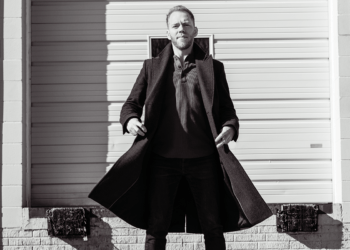Growing up in Beatrice, Neb., Jacob “Jake” Hausman harbored a childhood dream of serving in the U.S. military. Both his grandfathers and an uncle served. He volunteered for the Army in 2002 and upon completing the rite of passage known as basic training, he finally realized his long-held dream. He made it as an infantryman, too, meaning he’d joined the “hardcore” ranks of the all-guts-and-no-glory grunts who do the dirty work of war on the ground.
By the time his enlistment ended three years later, Hausman earned a combat service badge during a year’s deployment in Iraq. He participated in scores of successful missions targeting enemy forces. He saw comrades in arms, some of them close friends, die or incur life-threatening wounds. He survived, but there were things he saw and did he couldn’t get out of his mind. Physical and emotional battle scars began negatively impacting his quality of life back home.
Headaches. Ringing in the ears. Dizziness. Nightmares. Panic attacks. Irritability. Depression. Anxiety. Certain sounds bothered him. He felt perpetually on edge and on high alert, as if still patrolling the hostile streets of Mosul or Fallujah. With his fight-or-flight response system stuck in overdrive, he slept only fitfully.
A relationship he started with a woman ended badly. He lived in his parents’ basement, unemployed, isolating himself except for beer-soaked nights out that saw him drink to oblivion in order to escape or numb the anguish he felt inside. No one but his fellow vets knew the full extent of his misery.
With things careening out of control, Hausman sought professional help. Hardly to his own surprise, he was diagnosed with Post Traumatic Stress Disorder (PTSD). Anyone who’s endured trauma is prone to develop it. Sustained exposure to combat makes soldiers particularly vulnerable. Not all combat veterans are diagnosed with PTSD, but nearly one-third are.
What did surprise Hausman was learning he’d suffered a traumatic brain injury (TBI). In retrospect, it made sense because the Stryker combat vehicle he was in absorbed an IED (improvised explosive device) blast that knocked him unconscious. Studies confirm ever-stronger charges like that one caused many more such injuries as the Iraq and Afghanistan conflicts wore on. Injuries of this type often went undetected or unreported in the past.br
“In combat and war, no one’s playing music in the background. It’s not passionate; it’s pure survival instincts.” – Jacob Hausman
brIt was because of these diagnoses that Hausman became a casualty among returning veterans. Some estimates put their numbers with PTSD and/or TBI at a quarter of a million. Statistics alone don’t tell the story. In each case, an individual experiences disruptive symptoms that make adjusting to civilian life difficult. The suicide rate among this group is high.
The scope of this health care crisis has strained U.S. Department of Veterans Affairs’ resources. In some locales, benefit claims are months behind schedule. Nebraska’s VA system has largely kept pace with demand. Hausman’s own claim was expedited quickly. He was found to be 90 percent disabled.
Six years after starting a VA treatment regimen of counseling and medication to address his PTSD issues, along with physical therapy to mitigate his TBI symptoms, his life has turned around. He earned bachelor’s and master’s degrees from Bellevue University. He’s gainfully employed today as a veterans service representative at the Lincoln VA. He also does outreach work with vets. He recently married the former Kendra Koch of Beatrice, and the couple reside in a home in Papillion.
They adopted a Lab-Golden Retriever mix dog, Lucy, from a rescue animal shelter. Kendra’s an animal lover like Jacob, who with his mother, Gayla Hausman, and his friend, Matthew Brase, own and operate the foundation Voice for Companion Animals.
Throughout his active duty Army tenure, Jake carried inside his Kevlar helmet a photo of his favorite adolescent companion, a Chihuahua named Pepe. Not long after Jake’s return from Iraq, the dog took sick and had to be put down.
Jacob and Kendra are seriously considering starting a family.
Emotional and physical challenges persist for him, but he now has tools to manage them. No longer stuck in the past, he lives one day at a time to the fullest and looks ahead to realizing some dreams. Contentment seemed impossible when he was in the depths of his malaise. His is only one man’s story, but his recovery illustrates PTSD and TBI need not permanently debilitate someone.
He’s certainly not the same Jake Hausman who joined the Army a decade ago. “I came back a completely different person. I had so much life experience,” he says. Good and bad. If nothing else, it matured him. His views on the military and war have changed. He’s not bitter, but he is wizened beyond his 28 years, and he wants people to know just how personal and final the cost of waging war is. He also wants fellow vets to know the VA is their friend.
Soldier Boy
brLike a lot of young people, Hausman had a romantic view of soldiering. He saw it as a ticket out of his small town to find thrills and see the world.
“People live in Beatrice for a 100 years. It’s like my grandpa lived here, my mom lived here, and I’m going to live here, and I didn’t want that for myself. I struggled at school, I didn’t succeed, I was in trouble with the law, I didn’t have a bright future. And the Army at least promised adventure, intrigue. I just thought, Gosh, I want to be part of a story that can be told from generation to generation. I want to be part of something greater than myself.
“I didn’t feel connected [before]. I mean, I was social, I had friends and so forth, but I didn’t feel I belonged anywhere and I really craved that. I craved being a part of something bigger than what I was, and [the infantry] really gave it to me.”
You might assume the catalyst for his enlistment was the 9/11 terrorist attacks, but you’d be wrong. Long before then he’d made up his mind, he would enlist as soon as he could. He wanted it so badly that he was only 17 when the Army took him with his parents’ written consent. He completed high school early.br
“I craved being a part of something bigger than what I was, and [the infantry] really gave it to me.” – Hausman
br“Since I was like 5 years old, I wanted to be a part of the infantry. My mom’s father was in the infantry during the Korean War, and that’s why I ultimately joined. So I was always allured by the infantry because they’re the hardest, the best, the whole thing. I was beyond motivated.
“The struggle, the fight, well, that’s all true. You actually get to experience those things, and it’s not pretty and glorified. What I always tell people is that in combat and war, no one’s playing music in the background. It’s not passionate; it’s pure survival instincts. And when you’re in those situations, you’re not doing it for the flag. You’re doing it for your friend to the left and right of you.”
He couldn’t know the hard realities of war before experiencing it. He only thought about the excitement, the camaraderie, the tradition.
“Well, I got all those things, and I got a little bit more than I bargained for.”
You’re in the Army Now
brHis service almost got shelved before getting started. Weeks before leaving for basic training, he and some friends were out cruising Beatrice in his car. Open alcohol containers were within plain view when they got pulled over by local police. Jake was behind the wheel. Already on probation for underage-drinking violations, Hausman “freaked out” and fled the scene. He later turned himself in. Authorities could have used the pending charges to prevent him from going into the Army. A probation officer became his advocate.
“She went above and beyond for me,” he says. “She saw something in me and just really pushed for me and got it dropped. Two weeks later, I left [for basic]. About three years later when I came back, I told her what that meant to me and who I am now because of it. If it wasn’t for her, this story would have never happened.”
So off he went for the adventure of his life. Rude awakenings came early and often at Fort Benning, Ga., for this “spoiled only-child” who’d never done his own laundry.
“You grow into a man really fast. It kicked my ass.” Mental and physical toughness are required of infantrymen, and he had no choice but to steel himself for its rigors.
“You adapt fast or you suffer,” he says, “and I was one who adapted fast. The infantry is so hard. There’s a lot of hazing. It’s survival of the fittest.”
Hazing and all, he says, “I thought basic training was the best thing I’ve ever done. The reason why it was powerful for me is that it was all about the mission. There was no individualism; we were all a team. I really loved that.br
“You grow into a man really fast. It kicked my ass.” – Hausman
br“My master’s is in leadership, where the focus is on what can you do for the team, and that’s what the infantry is. No matter if you show up with a shaved head or dreadlocks, you get your head shaved. No matter if you’re clean-shaven or you have a beard, you get your face shaved. It’s just part of it. They strip you down to your very bare minimum, and it’s all about coming together as a team, being a man, learning how to get along with others, and learning different cultures.
“You’re talking about someone who, as a kid, had one black person in his class and now I had blacks, Hispanics, [and] Jamaicans in my barracks. I’d never dealt with that. I learned so much from other people; it was fantastic. They treated me like everyone else, I treated them like everyone else.”
Infantry training is largely about endurance. “The whole infantry thing is walking and running while carrying a 50- to 75-pound rucksack,” he says. “Can you walk a long ways with all that weight?”
Before making it into the infantry, one must pass a final crucible. Hausman recalls it this way: “They have this legendary walk that’s like 25 miles of water, hills, and so forth. It’s like your final capstone test at the very end. You know you’re an infantryman if you pass this thing. It’s hell on earth. I had to duct tape my thighs so they wouldn’t rub together. You walk through a river, and your feet are wet. One entire foot was rubbed raw. I mean, it was the most painful thing I’ve ever done.
“It’s just a whole mental thing—Can you get through the pain? It was so great getting that done. I was so proud.”
He then joined his unit in Fort Lewis, Wash., to await deployment. He says everything there was even more intense than at Fort Benning—the training, the hazing, the brotherhood, the partying. He felt he’d truly found his calling. “I became very good at being an infantryman. You really felt a part of the team; you bonded. I mean, you just had a lot of brothers.”
He says the drills he and his mates did in the field, including playing realistic war games, made them into a cohesive fighting force.
“We were a killing machine.”
Desert War
brA downside to barracks life, he says, is all the alcohol consumption. “Drinking is the culture—I’m talking excessively. In the military, you’re drinking hard liquor, and you’re just drinking till you curl up. That’s the path that started going bad for me there.” But a substance abuse problem was the least of his worries once in Iraq in 2003.
His company was assigned to the new Stryker Brigade, which took its name from the 8-wheel Stryker combat vehicle. “Something in-between a Humvee and a tank,” Hausman describes it. “After Somalia, our brass decided we needed a vehicle that could put infantry in the city, let us do our thing, and get us out fast.”
It carried a crew of six.
“We built cages [of slat armor] on the outside to stop RPGs (rocket-propelled grenades).” The cages proved quite effective. However, Strykers had a problem with rollovers, a defect Hausman would soon experience to his horror.
“We had a lot of good intelligence from special forces initially. Every day, we would kick someone’s door down and take out a terrorist. We’d either arrest him, kill him, do whatever. We killed a lot of bad guys.
“Once the intelligence stopped, we kind of ran out of operations to do.” Then his squad’s duty consisted of doing presence patrols. “It basically was to show the Iraqis we were around, but in all reality, it was walk around until we got shot at so we could kill [the shooters].”
Draw fire, identify target, engage.br
“You’re still seeing a human being face-to-face; you’re still pulling a trigger on someone; you still have that you’re-dead-or-I’m-dead reality. You cannot shake that experience.” – Hausman
brHausman was a specialist as the squad’s designated marksman. “I had an extra weapon—a snipe rifle. I’d go out with the snipers, and we’d do recon on special missions,” he explains. “We’d take fire here and there, but we’d maybe only get in a firefight every three weeks.”
He was part of a Quick Reaction Force unit that responded within minutes to crises in the field. That sometimes meant coming back from a long operation only to have to go right back out without any sleep.
“Once, we got into an 18-hour firefight when we were called to secure two HET (Heavy Equipment Transporters) vehicles hit by RPGs and abandoned by their transportation team. It was a residential district in Mosul. We got there and RPGs start blasting and IEDs started popping. It was just an ambush. The enemy had us surrounded 360 degrees. We were pinned down taking gunfire. This was life or death. At a certain point, you’re not thinking; it’s pure survival animal instinct.
“I turned the corner at a T-intersection, and there were muzzle flashes from windows. There were four of us versus about six muzzle flashes. It was just who could kill who fastest. A guy came across the roof, and I fired my 203 grenade launcher, BOOM, dead. A squad member got shot and paralyzed. Another got wounded by an RPG, his intestines spilling out. He was EVAC’d out.”
He says in situations like these you confront the question: “Are you really committed to killing another human being? And I have killed another person.” Despite today’s automatic weapons, he says, “You’re still seeing a human being face-to-face; you’re still pulling a trigger on someone; you still have that you’re-dead-or-I’m-dead reality. You cannot shake that experience.”
In the aftermath of such intense action, he says, “You’re hiked up; you can’t sleep.” Indeed, he “couldn’t let down” for his entire nine months in Iraq. “You just can’t let your guard down.” Even on leave back home, he was so conditioned by threats that “driving back from the airport,” he recalls, “I was looking for IEDs on the road, scanning the roofs for snipers.” When he could finally release the pent-up stress, he slept three straight days.
A Tragic Accident
brAs bad as firefights got, Hausman says, “The worst thing I’ve experienced in my life occurred about a month after I got to Iraq.” It didn’t involve a single gunshot or explosion either. It was his turn operating the Stryker. His team, followed by another in a second Stryker, were on a muddy backroad near Samarra heading to do recon. A ravine on their side of the road led to a canal. Suddenly, the road gave way and both Strykers overturned into the canal. The ensuing struggle haunts him still.
“We’re upside down, water starts running in, it’s miserable cold. I’m thinking, ‘Oh no, it’s over.’”
He recalls hearing his father’s voice telling him not to panic.
“I don’t know how I got the hatch open, I just muscled it, and the water rushed in. I took a deep breath and went down in it. My body got pinned between the ground and the vehicle. I’m struggling, I’m drowning. I thought, ‘Is this how I’m going to die?’ I escaped from the bottom somehow and got on the side,”…only to find himself trapped again. He began swallowing water.br
“My body got pinned between the ground and the vehicle. I’m struggling, I’m drowning. I thought, ‘Is this how I’m going to die?’” – Hausman
br“I looked up and I could kind of see the moon. I started clawing, clawing, clawing, and gasping for air. I made it. I gathered my thoughts, climbed on the vehicle, and saw one of my buddies had gotten flung out. We went to the back,” where they found their mates trapped below, desperate for escape. “We were all fighting to get the hatch open. It was just terrible. We get the hatch open, and everyone’s there.”
A roll call accounted for all hands. Except in the rush to get out, a team member got “trampled over” and drowned. “We got his body out and did CPR, but it was five minutes too late.”
Hausman was “really good friends” with the lost squad member, Joseph Blickenstaff.
The driver and the squad leader in the second vehicle also died. Hausman was friends with the driver, J. Riverea Wesley. Staff Sergeant Steven H. Bridges was the squad leader lost that day.
Assessing what happened, Hausman says, “It was chaos; it was tragedy. That really shattered me for a while. I won’t let it ruin my life—I’ll go swimming and stuff—but it was just traumatic. It is hard to deal with—getting over it. There’s some parts of it I will never get over.”
The Aftermath Comes Home
brWar being war, there’s no time or support for processing tragedy and trauma. “It was shove everything inside, shut up, move forward,” says Jake. Those unresolved feelings came tumbling out like an “avalanche” when he got back home in 2004.
“I was just a trainwreck. I was miserable, destroyed. My emotions ran wild. I couldn’t sleep. I was just so anxious. I couldn’t take deep breaths, I would sniff, just like a dog panting. Like a 24-hour panic attack. You’re uncomfortable being you every second of the day. You’re not in control, and that’s what you’re afraid of. Just freaking out about stuff. I was so afraid at night I would get up nine or 10 times and check the lock on my door. The nightmares are incredible.”
Excessive drinking became his coping mechanism. The more he drank, the more he needed to drink to keep his demons at bay. “You’re in a vicious cycle, and you can’t get out of it,” he says.
“At one point, I contemplated suicide because I was like, ‘What is the point of living when I am this bad, this miserable? Is it ever going to get better than this?’”
His family saw him unraveling.
“Mom and Dad were worried, deathly worried, but they didn’t know how to handle it. They didn’t know if it was a stage or my turning 21. They didn’t know what to do with me.”
“Usually in this population, patients turn to drinking or to other substance abuse and the number one reason they tell me they do it is because they can’t sleep or to fight off nightmares,” says Omaha VA social worker Heather Bojanski. “They don’t want to come in for help, they don’t want medication, and drugs and alcohol are easy to get a hold of. They’d rather try to cope themselves before they come in for help or actually have to face [that] there is a problem.”
Jim Rose, a mental health physician’s assistant with the Lincoln VA, says recovery has to start with someone recognizing they have a problem and wanting to deal with it. “If they’re still reluctant to accept that as a problem, then it makes it very difficult. Help’s out there, but it is difficult with this group who by nature tend to be more self-reliant and have the world by the shoulders, and then to have something like this happen kind of turns things upside down.”
There’s no set timetable for when PTSD might present in someone.
“They’re all on a continuum,” says Bojanski. “Two veterans can come back who have seen and been through the same exact thing, and one will seem perfectly fine and the other may immediately start struggling. That all depends on a few things—what was going on in their life when they came back, and how much family support they have. It’s all going to depend on them and their family and what’s going on and how honest they are with themselves.
“If they come back and they have great family support and their family’s in tune and really watching them, then they’ll do well. But if nobody’s really paying attention and they’re just doing their own thing and they start isolating and drinking, then those are big issues to look at and people really need to encourage them to come in.”
Hausman says, “There’s a threshold of stress. It’s going to come out eventually if you don’t take care of it. For me, it came out real early. I was a boy; I was not equipped for getting used up in the war machine.”br
“[Some veterans] would rather try to cope themselves before they come in for help or actually have to face [that] there is a problem.” – Heather Bojanski, social worker
brRose says PTSD tends to be suppressed among active duty military because they’re in a protective environment around people with similar experiences. But once separated from the military, it becomes a different matter.
“They feel isolated, and the symptoms will probably intensify,” he says. “It’s usually a couple years after discharge people reach a point where they just can’t cope with it anymore and something’s going to happen—they’re going to get in trouble or they’re going to ask for help, and that’s when we see them.”
That’s how it was for Hausman, who concealed the extent of his problems from family and friends and tried coping alone.
“I didn’t want to burden them with that…My friends, they thought it was just old Jake because I’m a partier, I’m gregarious, so they enjoyed it. But they didn’t see the dark side of it. They didn’t understand the mega-depression and anxiety. When I was drunk, I could shield it.
“But there’s usually one or two people in your life that know you. Robert Engel is probably my best friend to this today. He was in my unit. He lives in Kansas City, Mo. He recognizes when I’m down; I recognize when he’s down. We kind of pick each other up. He’s seen me at my lowest point but he accepts me for who I am, and I accept him for who he is, and we sincerely care about each other.”
Getting Help
br”When I decided I wasn’t going to kill myself, I resolved to figure this out,” says Jake. “I started reading spirituality, I started studying psychology.”
Most importantly, he sought help from the Veterans Administration. He and a fellow vet in Lincoln, Mike Krause, talked straight about what he needed to do. Like any vet seeking services, Hausman underwent screenings. He had all the classic symptoms of PTSD.
The intake process works the same for all vets. Bojanski says, “We sit down with each of them individually and decide what level of care they need.” In the case of Hausman, she says, “He came to the VA, and we started to treat him. Then when he started to take medication, he stopped drinking, and it was like an eye-opening experience to him that, ‘Oh my God, I’ve been suffering all this time.’ He started to go to groups, he talked to other people and realized, ‘Wow, I’m not the only one suffering.’ Other people he knew from his unit were going.”
Rose says the medications commonly prescribed for PTSD are “a mixed bag” in terms of effectiveness. He emphasizes, “There is no medication that cures these symptoms, but we have got things that can help people lead better lives, including anti-depressants and anti-psychotics.” To supplement the meds, he says, “We try to steer people to cognitive-therapy counseling.”
A holistic mind-body-spirit approach has worked for Hausman.
“That’s why exercise is important, counseling is important, and you have to supplement it with medication,” he says. “It’s not just a one trick pony. You can’t just throw some meds at someone and expect them to get better, you have to do all those things.”
Rose salutes Hausman and anyone who embraces recovery. “It’s a fairly lengthy process, and it involves commitment. It’s not a passive act. Jake’s a testament to people that, if you really want to get through it you can.”
Lincoln VA substance abuse counselor Mary Ann Thompson admires him for getting sober and “remaining clean and sober and productive.”br
“He easily could have succumbed to all those issues and who knows where he’d be at now, but I’m so proud of him for moving forward.” – Kendra Hausman, Jacob’s wife
brBojanski sees a new Jake, saying, “He has a much better outlook on life. He’s very proactive.”
More than most, Kendra Hausman appreciates how far her husband’s come: “I’ve seen a lot less anxiety. Overall, he’s more calm, more level-headed, he’s able to handle situations better. He doesn’t get as angry or as worked up about small things like he used to. He easily could have succumbed to all those issues and who knows where he’d be at now, but I’m so proud of him for moving forward. He’s very determined. Once he puts his mind to doing something, he’ll get it done no matter what. He’ll figure out what he needs to do, just like he did with his school and career.”
Jacob, himself, says, “I’ve come a long ways. Life is so much better.” What he’s realized, he says, is “There are just some things you cannot [do with] will power; you just have to get help from people. I’ve had a lot of good people in my life that have helped me. And that’s what I’ve learned—you have to ask for help, you have to be willing to get help. The VA is there to help people. They’ve helped me so many times.”
Bojanski says the VA’s more responsive to veterans’ needs today. “The VA realized we did a lousy job welcoming Vietnam veterans back home, so when this war started, we wanted to be proactive and make sure we welcomed our veterans home. We didn’t want them to have a stigma with mental health, we wanted to make sure everything was in place. So we created these clinics (OEF or Operation Enduring Freedom and OIF or Operation Iraqi Freedom), where we work very hard with veterans. It’s very confidential, so not everybody in their unit is going to find out. We have an ER open 24 hours a day.
“It’s not like it used to be when you just had to soldier on, or if you reached out for help it wasn’t confidential.”
She says there isn’t as much stigma now about seeking mental health care.
“It’s getting better; we’re still not where we need to be, but I will say the armed forces, the Department of Defense, and our population in general are changing their views about that. We also do a lot of outreach, a lot of speaking to communities to make sure people are aware it’s okay to get help.”
Hausman does outreach himself as a way of giving back. He says when he addresses audiences of freshly returned vets, he commands their attention.
“They believe in me because I’ve seen it, I’ve done it, and I’m working for the VA. I’m 90 percent service-connected; I’ve got a combat infantry badge. Seeing them is like seeing my reflection. I’m motivated to get them right before they take the wrong path. Someone got me over the hump, and I want to get them to that point, too. I want to help veterans get the services they need. It’s just so rewarding.”
The War that Never Ends, Moving on with Life
brHis PTSD still flare-ups now and then. “Recently, I had a little struggle for a while, but I didn’t fall back into the past because I’ve got good people in my life today.” He says he has combat veteran friends who still struggle because “they don’t have the support system.”
He accepts the fact he’ll always be dealing with the effects of war.
“There are some things I would change, but it’s made me who I am even with all the disabilities and struggles and everything I face. I think through all the suffering I’ve come to know peace. There’s some breaking points where you feel sorry for yourself and you have little pity parties, but then again I look around me and see what I have—a great support system, a wonderful wife.brIt’s made me stronger.”br
“I think through all the suffering I’ve come to know peace.” – Hausman
brFinding Kendra, who works as a speech pathologist with the Omaha Public Schools, has been a gift. “She is the light of my life; she changed my life. Her enthusiasm for life is just breathtaking. She’s smart, beautiful, loving. She’s the greatest teacher in my life. She doesn’t need to understand everything I go through, but sometimes I need her to help me get through it.
“I was going through a low point, and she said something to me that no one else could say to me without offending me: ‘You got through war, now you can get through this, so suck it up.’ From her, that meant a lot. She knows me at that fundamental level to tell me what I need to hear sometimes. We’re really good together.”
Flareups or not, Jake’s moving on with life and not looking back.
If you have a concern about a veteran or want more information, call 402-995-4149. The VA’s local crisis hotline is 1-800-273-8255. For the latest findings on PTSD, visit ptsd.va.gov/aboutface.
Read more of Leo Adam Biga’s work at leoadambiga.wordpress.com.


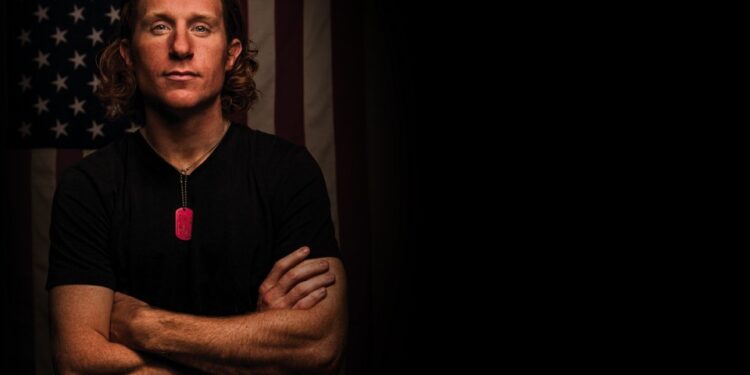
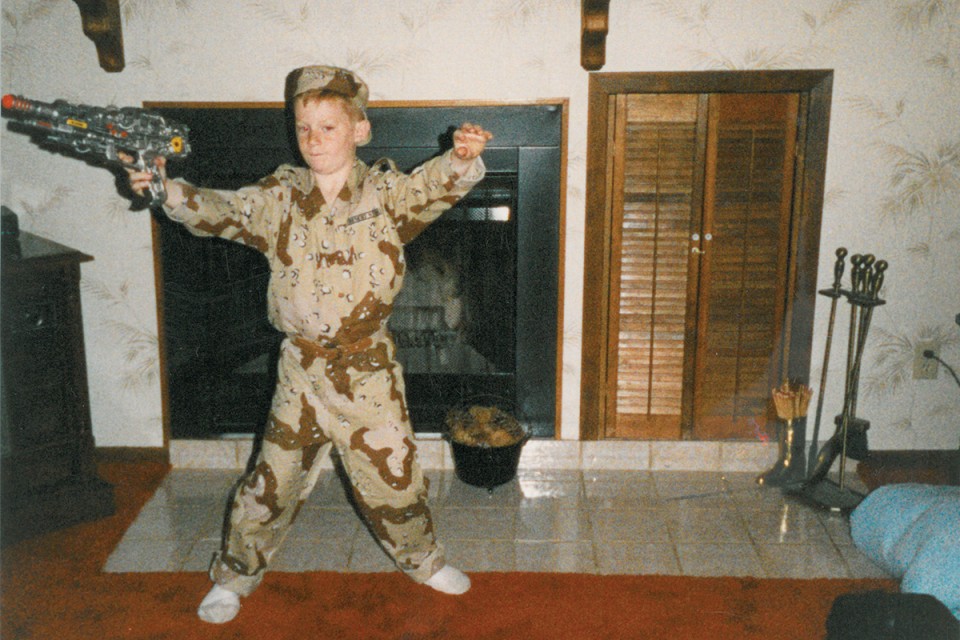
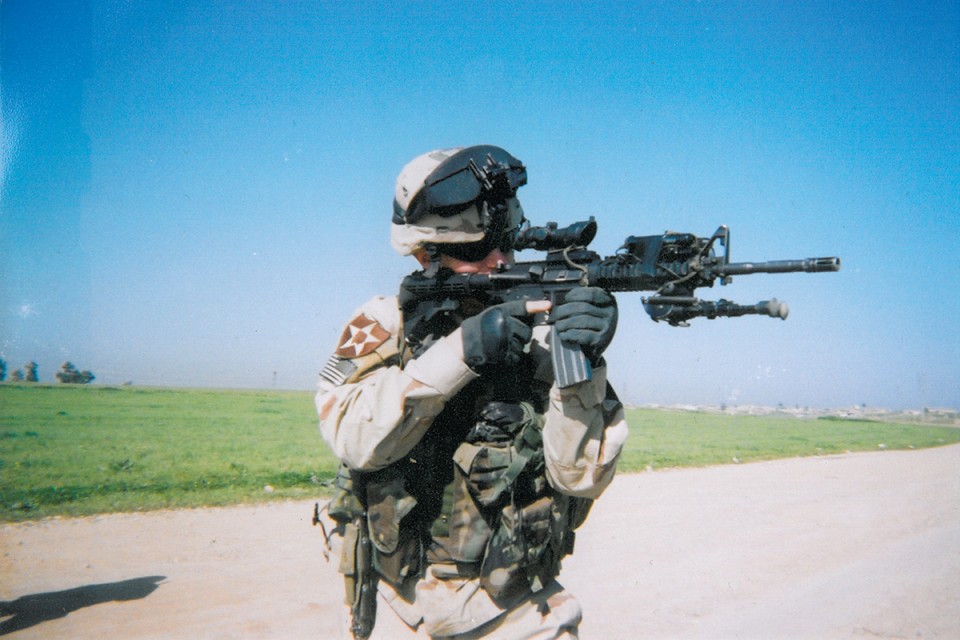
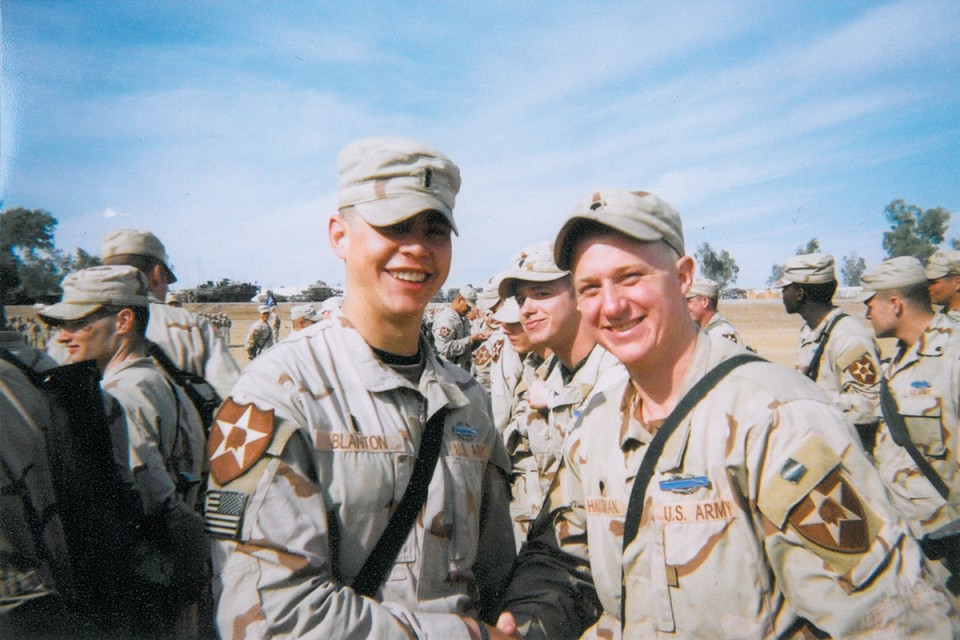
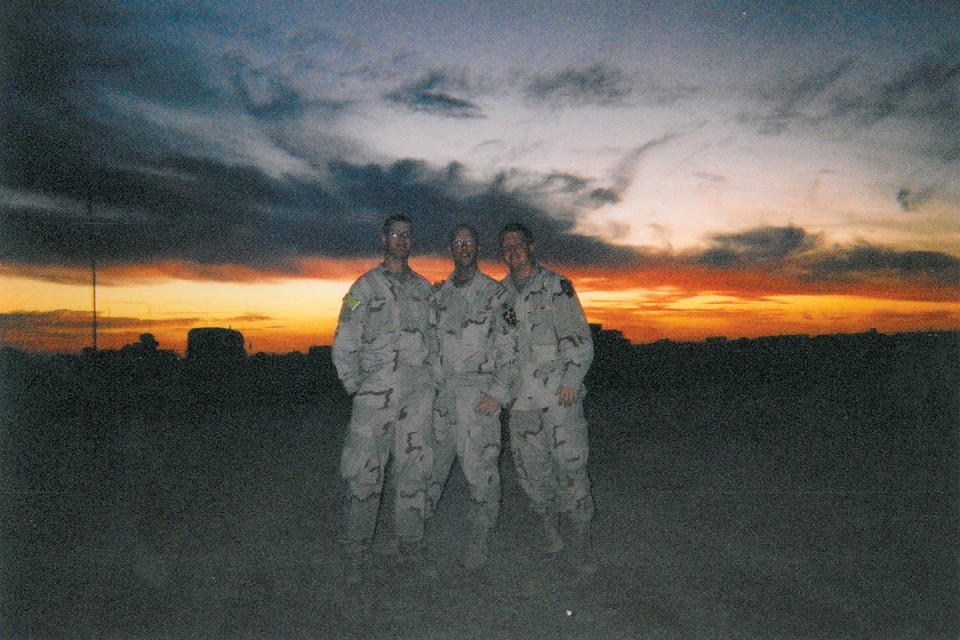
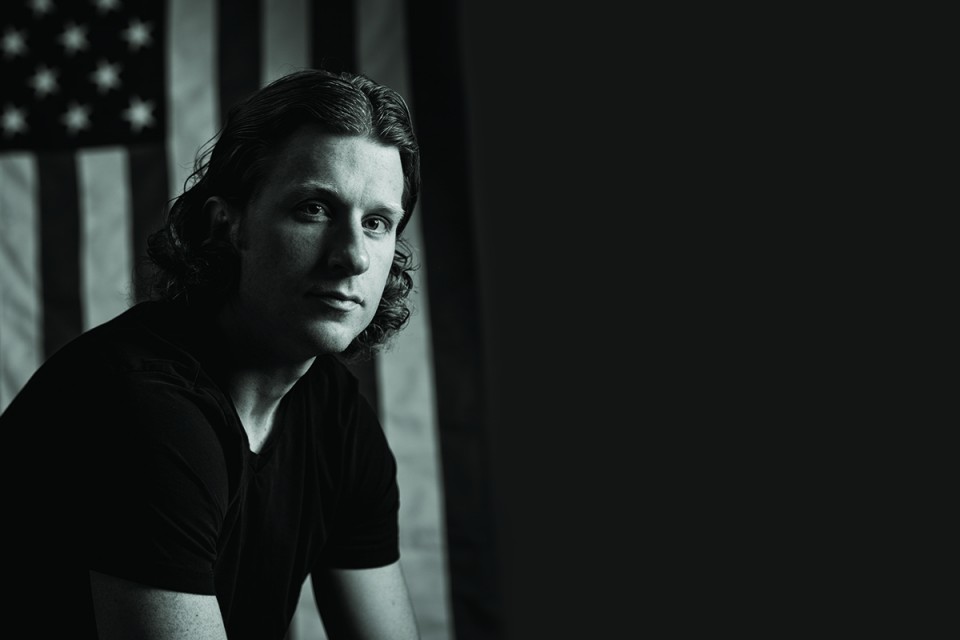

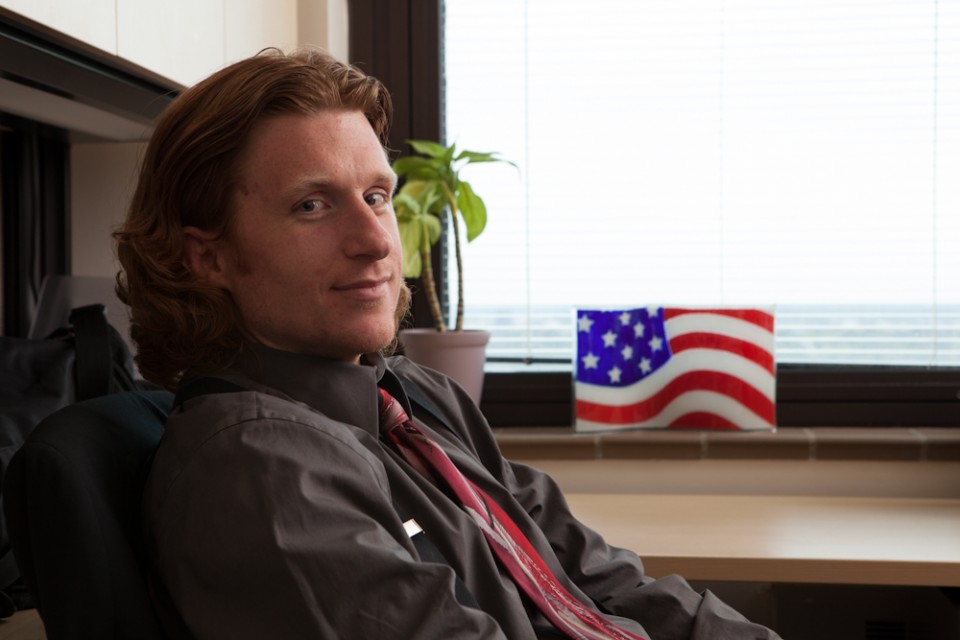
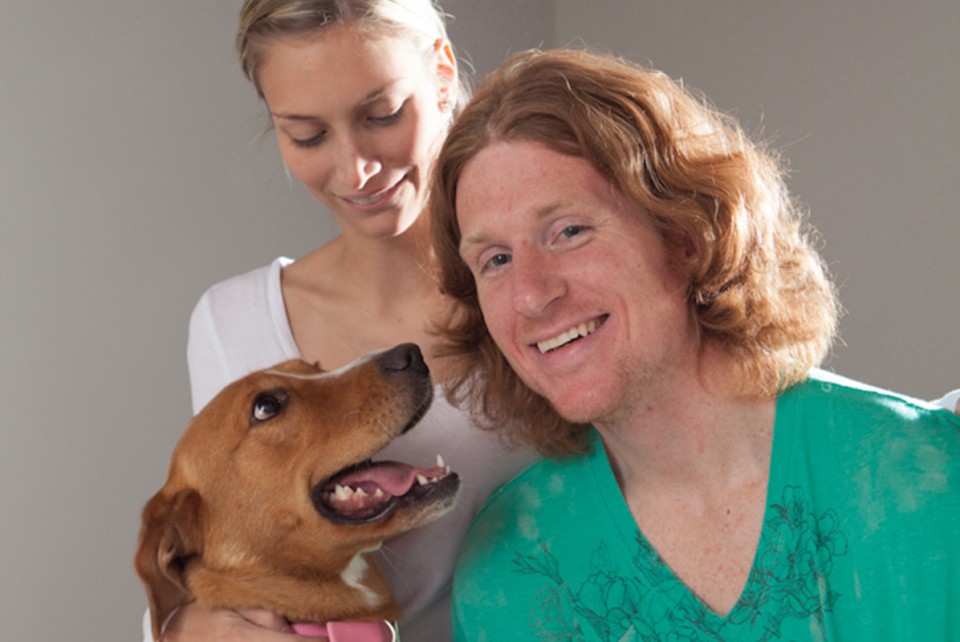








![[L to R] Daisy Hutzell-Rodman, Julius Fredrick, Kim Carpenter.](https://www.omahamagazine.com/wp-content/uploads/sites/2/2024/04/BTL-350x250.png)

